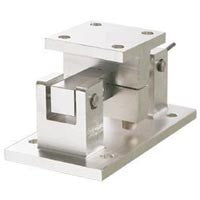Tank and silo weighing scales are critical for many industries. They ensure accurate measurement of product levels, help with inventory management and can even provide data for quality control purposes.
So, how do tank and silo weighing scales help various industries?
● Agriculture
Tank and silo weighing scales are used to weigh farm yields like grains, fruits, vegetables, poultry and livestock. They can also be used for milled, refined or processed products such as flour and sugar.
Farm and ranch owners use this information to determine how much of the product is available for sale and it also helps them keep track of their inventory. In some cases, it gives them an idea of how many products to cultivate for every season.
● Food and Beverage
Food and beverage manufacturers use tank and silo scales to measure raw ingredients like milk, butter, water, sugar, yeast and so much more. Food manufacturers use this data for production planning and quality control.
This helps them maintain the excellence in the quality and quantity of their products. They can also make adjustments in certain cases or as necessary to ensure the needs of their customers.
● Chemicals Industries
Big industries like petroleum, pharmaceutical and research facilities use tank and silo scales to weigh chemicals like oil, gas and medicine mixtures. They use the information to ensure the safety of their manpower as well as the consumers.
Chemicals require good handling and proper proportion to ensure that they will not cause any harm or accident. The use of a tank and silo weighing scale helps achieve this goal while maintaining the quality of the products.
● Environmental Agencies
To regulate waste products like sewage and hazardous materials, a tank and silo weighing scale can be used in landfills, sewers and dumpsters. Biohazards require special procedures for safe disposal. By using the appropriate weighing scale, environmental agencies can determine disposal methods and track compliance with state codes and regulations.

Tank and silo weighing scales are an essential part of many industries. They help various businesses, companies and sectors keep track of their inventory, plan production, control quality, produce appropriate quantities and dispose of waste properly.
How to Select Load Cells for Tank and Silo Weighing Scales
When selecting load cells for tank and silo scales, there are several factors to consider. These aspects play an important role in determining which load cells are best suited for the application.
1. Type of Material Being Weighed
Load cells are available in a variety of materials, each with its strengths and weaknesses. For example, stainless steel load cells are suitable for use with corrosive materials, while aluminium load cells are better suited for use in environments with extreme temperatures.
2. Size of the Tank or Silo
Larger tanks and silos require load cells with higher capacities, while smaller ones can use load cells with lower capacities. For this reason, it helps to know the heaviest product or material for which your tank and silo scale will be used.
3. Environmental Location
It is important to evaluate whether the weighing scale will be used indoors or outdoors, in humid or varied conditions or self-contained or harsh environments. Make sure it can handle the type of working environment you have.
Additionally, you should consider whether the scale will be exposed or submerged. You should use waterproof load cells for your tank and silo scale if your business involves the use of cold water, cleaning solutions or chemicals.

8 Elements Affect Silo Tank Weighing System Accuracy
- The Type of Load Cells Used: If you are using strain gauge load cells, they should be calibrated regularly. Additionally, the type of material used in the load cells can also affect their accuracy. Generally, it is highly recommended to use stainless steel load cells for tank and silo scales because they are more accurate than aluminium load cells.
- The Number of Load Cells Used: The more load cells you use, the more accurate your system will be. However, using too many can be costly and may not be necessary for your application. It helps to ask a reliable scale provider near you for advice to ensure that you are using the most appropriate number of load cells for your tank and silo weighing scale.
- The Capacity of the Load Cells: Make sure that the load cells you are using can handle the weight of the material you are measuring. You should also consider if it can hold large and irregularly-shaped things.
- The Diameter of the Silo Tank: The larger diameter of the tank, the more load cells it will require to produce the most accurate reading.
- The Height of the Silo Tank: Similarly, the taller the tank, the more load cells it will need for it to yield accuracy and precision.
- The Material of the Silo Tank: Just like the material used for the load cells, a stainless steel tank provides a more accurate measurement reading than a tank made of aluminium.
- The Environmental Conditions: Make sure that the load cells are protected from harsh elements and that they are not exposed to extreme temperatures.
- The Type of Pump Used: Make sure that the pump is compatible with the load cells you are using. Ask your trusted load cell supplier for the best type suitable for the pump of your silo.
When selecting load cells for tank and silo scales, it is important to consider the above-mentioned factors and take into account the elements that may affect the performance of your weighing scale. Doing so can help you make use of your tank and silo weighing scale more befitting for your business.
Contact Meltrons Australia today for all your tank and silo scale needs!

